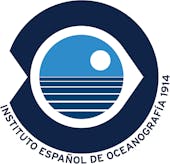Instituto Español de Oceanografía (IEO - CSIC)

El Instituto Español de Oceanografía fue creado por Real Decreto de 17 de abril de 1914, es un organismo público de investigación (OPI) dedicado a la investigación en ciencias del mar, especialmente en lo relacionado con el conocimiento científico de los océanos, la sostenibilidad de los recursos pesqueros y el medio ambiente marino. El IEO depende del Ministerio de Ciencia e Innovación.
El IEO no se limita a realizar investigación básica y aplicada, también asesora científica y tecnológicamente a las administraciones en asuntos relacionados con la oceanografía y las ciencias del mar. De hecho, según la Ley de Pesca Marítima de 2001, el IEO es el organismo investigador y asesor para la política sectorial pesquera del Gobierno. Además, es el representante científico y tecnológico de España en la mayoría de los foros y organismos internacionales relacionados con el mar y sus recursos.
El IEO es un organismo autónomo, con personalidad jurídica y patrimonio propios, que cuenta con una plantilla aproximada de 700 personas –de la que el 80% es personal investigador y de apoyo a la investigación–.
El presupuesto del IEO supera los 65 millones de euros y tiene una amplia cobertura geográfica e importantes instalaciones. Cuenta con una sede central en Madrid y nueve centros oceanográficos costeros: A Coruña, Baleares (Palma de Mallorca), Cádiz, Canarias (Santa Cruz de Tenerife), Gijón, Málaga (Fuengirola), Murcia (San Pedro del Pinatar), Santander y Vigo; cinco plantas de experimentación de cultivos marinos; doce estaciones mareográficas y una estación receptora de imágenes de satélite. Su flota oceanográfica, de más de una veintena de embarcaciones, cuenta con cinco buques oceanográficos importantes, entre los que destacan los buques gemelos de 46 m. Ramón Margalef y Ángeles Alvariño.
El Instituto Español de Oceanografía realiza trabajos de investigación básica y aplicada en oceanografía y ciencias del mar, así como otros servicios para el desarrollo científico-tecnológico y el mantenimiento de las actividades industriales, sociales y empresariales, con el objetivo de incrementar el conocimiento científico de los océanos y que se haga un uso sostenible de éstos.
Sus funciones básicas son:
Investigación científica en oceanografía y ciencias del mar y estudio multidisciplinar del mar. Asesoramiento a la Administración General del Estado en su política pesquera y marina en general. Representación de España en las organizaciones internacionales de pesquerías y ciencias marinas. Promoción de la cooperación en investigación marina a escala regional, nacional e internacional. Formar investigadores marinos y difundir los conocimientos oceanográficos.
The Spanish Institute of Oceanography was created by Royal Decree of 17 April 1914, is a public research organization (IPO) dedicated to research in marine science, especially in relation to scientific knowledge of the oceans, sustainability fisheries resources and the marine environment. The IEO under the Ministry of Science and Innovation, through the Ministry of Research.
The IEO is not limited to conduct basic and applied research, and technology also scientific advisor to the government on matters related to oceanography and marine sciences. In fact, according to the Sea Fisheries Act 2001, the IEO is a researcher and consultant for the sectoral fisheries policy of the government agency. Furthermore, it is the scientific and technological representative of Spain in most international forums and organizations related to the sea and its resources.
The IEO is an autonomous body with legal personality and assets, which has a staff of about 700 people-of which 80% is personal researcher and research-support.
IEO’s budget exceeds 65 million euros and has a wide geographical coverage and important installations. It has its headquarters in Madrid and nine coastal oceanographic centers: A Coruña, Baleares (Palma), Cadiz, Canary Islands (Tenerife), Gijon, Malaga, Murcia, Santander and Vigo; five floors experimental mariculture; twelve tidal stations and a receiving station for satellite images. Your oceanographic fleet of over twenty vessels, has eight major oceanographic ships, among them the Cornide de Saavedra, 68 meters long, and the sister ships of 46 m and Ramón Margalef Alvariño Angeles.
The Spanish Institute of Oceanography carries out basic and applied research in oceanography and marine science research and other services to the scientific and technological development and maintenance of industrial, social and business activities, in order to increase scientific knowledge of oceans and sustainable use thereof is made.
Its basic functions are: - Scientific research in oceanography and marine sciences and multidisciplinary study of the sea. - Advice to the Central Government in its fisheries and marine policy. - Representation of Spain in international fisheries organizations and marine sciences. - Promotion of cooperation in marine regional, national and international research. - Form marine researchers and disseminate oceanographic knowledge. A brief summary of the activities of the IEO includes: conducting quality research in oceanography and marine sciences; represent Spain in international forums related to oceanography and fisheries; studying vulnerable marine ecosystems; develop, coordinate, implement and manage research programs on fish stocks and on marine farming; report on science and technology projects to submit your request and that are related to marine science; study the oceans and continental margins with a multidisciplinary approach; establish and participate in agreements with public and private organizations, both national and international, to carry out research projects and other activities of scientific and technological; participate in international scientific research programs.
